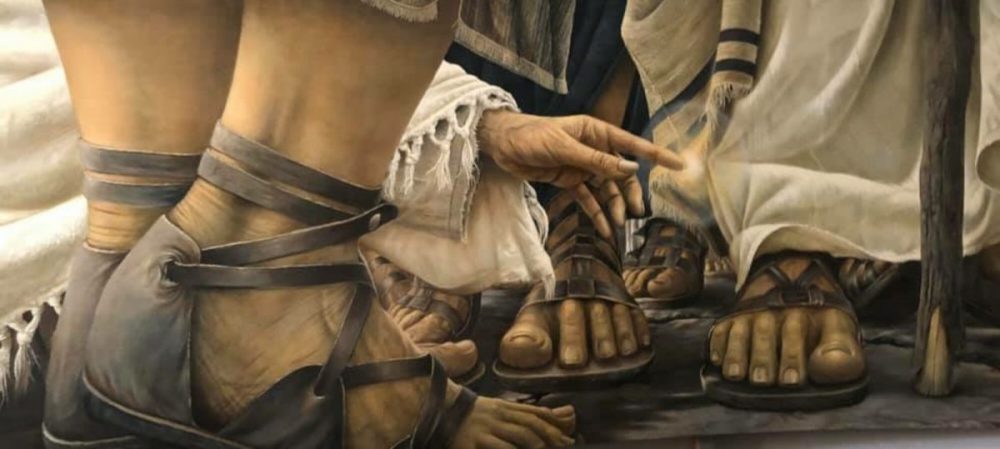I am sure most of you are familiar with the story of Noah. In Genesis 6, the Bible says that mankind was so wicked that God was grieved that He had created man and found it necessary to destroy the world (Gen. 6:5-7). Noah was a righteous man and walked with God, so God commissioned him to build an ark to save him and his family along with representatives of every kind of animal (Gen. 6:8-22).
In Genesis 7, we read that after Noah, his family, and all the animals entered the ark, God shut the door. It then rained for forty days and forty nights, the waters of the deep burst from the ground, and the heavens opened up a deluge (Gen. 7:11-12). The flood waters covered the entire earth and rose above the highest mountains. Every living thing, both man and beast, on the earth perished in the flood and all the dry ground was covered (Gen. 7:17-23). The only ones left were those on the ark, and all they could see was water.
Imagine being on the ark and experiencing the horrendous torrent of rain and the dramatic upheaval of the earth bringing a flood that destroyed all of life on the earth. Then, picture yourself living through the next 150 days of seeing nothing but water. How would you feel? Would you feel abandoned? Lost? Without hope? Would you wonder, “Where is God?”
Then we come to Genesis 8:1 which reads, “But God remembered Noah…”. At first glance, this almost sounds as if God woke up one day and, slapping His forehead, said, “Oh my, I forgot I left Noah, his family, and the animals bobbing around in the water on that ark!” However, that is not what this phrase means. It is important for us to realize that Hebrew words have a much fuller meaning than most of our English words do. Lois Tverberg explains it as follows:
In English, our definition of the word remember focuses entirely on the idea of recalling memories and bringing ideas into our thoughts. To forget is to fail to bring a certain memory to mind. Both words are concerned entirely with mental activity—whether or not information is present. But the Hebrew verb zakhar has a much wider definition than just “remember.” It includes both remembering and the actions that are taken because of remembering. It often implies that a person did a favor for someone, helped them, or was faithful to a promise or covenant.a
In other words, with the Hebrew words, the emphasis is on action and not on mental activity. When the Bible says that God remembered Noah, it does not mean that He was recalling lost information. Instead, it means that He was acting upon a promise He had given earlier. It was now the right time to keep His promise to Noah, and to intervene and fulfill His purpose.
We see another example of this in the New Testament in Mark 6:45-51. In this passage, Jesus, after feeding the 5,000, sends His disciples in a boat to cross the sea to the other side while He goes up the mountain to pray. A storm came during the night and the disciples struggled to make any progress. I’m sure they were fatigued and fearful that they might not survive the storm. I also believe they may have wondered where Jesus was and why He wasn’t helping them as He had done before when they were caught in a storm (Mark 4:35-41). Jesus, however, had not abandoned them. He was on the mountain watching everything that was happening (Mark 6:48), and at the right moment, He went out to them walking on the water, and rescued them.
I believe that everything Jesus did with His disciples was done for a reason. I believe sending the disciples into the storm was a test of their faith. It was an opportunity for them to learn to trust Him, and to know that no matter how difficult the storm, He is always watching them, and He will come at just the right time to help them: He will remember them.
What storm are you going through now? Do you feel lost, helpless, and without hope? Do you feel as if God has abandoned you? I want to encourage you to remember Noah and the disciples. Even though you may not feel God’s Presence in your current situation, He has not forgotten you. He sees you and knows what you are going through. And, at the right moment, God will remember you and will intervene to keep His promise and fulfill His purpose for your life.
aTverberg, Lois. Reading the Bible with Rabbi Jesus. Baker Publishing Group. Kindle Edition. Location 918
